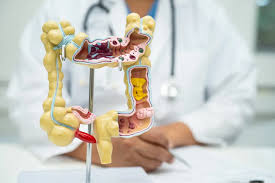Bowel cancer, also known as colorectal cancer, is a type of cancer that begins in the colon or rectum. It is one of the most common types of cancer worldwide, yet many people are unaware of its early signs and symptoms. Understanding these signs can lead to earlier diagnosis and treatment, which significantly improves outcomes. One of the lesser-known symptoms that can be associated with bowel cancer is unusual stomach noises. In this article, we will explore the hidden signs of bowel cancer, with a focus on understanding what stomach noises might indicate.
Read Also: Latest Updates: Paisley Daily Express Death Notices
Understanding Bowel Cancer
Bowel cancer typically starts as small, benign clumps of cells called polyps that form on the inside of the colon or rectum. Over time, some of these polyps can become cancerous. The exact cause of bowel cancer is not fully understood, but several factors can increase the risk, including age, family history, certain genetic conditions, diet, smoking, and alcohol consumption.
Common Symptoms of Bowel Cancer
The symptoms of bowel cancer can vary depending on the cancer’s size and location in the large intestine. Common symptoms include:
- Changes in Bowel Habits: This can include diarrhea, constipation, or a change in the consistency of your stool that lasts longer than a few weeks.
- Rectal Bleeding or Blood in Stool: This is one of the most noticeable symptoms and should always be checked by a doctor.
- Persistent Abdominal Discomfort: This includes cramps, gas, or pain.
- A Feeling that Your Bowel Doesn’t Empty: This sensation can be uncomfortable and persistent.
- Weakness or Fatigue: This can be due to blood loss or the cancer itself.
- Unexplained Weight Loss: Losing weight without trying can be a sign of many types of cancer, including bowel cancer.
Stomach Noises and Bowel Cancer
Stomach noises, medically known as borborygmi, are the sounds made by the movement of fluid and gas in the intestines. While these noises are usually normal and occur as part of the digestive process, certain changes in these sounds can sometimes indicate underlying health issues, including bowel cancer.
Increased Frequency or Volume:
If you notice that your stomach noises are more frequent or louder than usual, it could be a sign of increased intestinal activity. This might occur if there is a blockage or narrowing in the intestines, which can be caused by a tumor.
Accompanied by Other Symptoms:
If loud stomach noises are accompanied by other symptoms such as pain, bloating, or changes in bowel habits, it is important to seek medical advice.
Why Stomach Noises Occur
Stomach noises occur when the muscles of the stomach and intestines contract to move contents through the digestive tract. This process, known as peristalsis, is usually quiet, but can become audible under certain conditions:
- Hunger: When the stomach is empty, the brain signals the digestive muscles to contract, which can cause loud growling noises.
- Digestion: As food, liquid, and gas move through the intestines, they can create noise.
- Intestinal Blockage: A blockage can cause the intestines to work harder to move contents, leading to louder noises.
When to See a Doctor
If you experience persistent or unusual stomach noises, especially if they are accompanied by other symptoms of bowel cancer, it is important to consult a healthcare professional. Early detection of bowel cancer can significantly improve treatment outcomes.
- Persistent Changes in Bowel Habits: If you notice changes that last more than a few weeks, seek medical advice.
- Blood in Stool: Any presence of blood should be evaluated by a doctor.
- Unexplained Abdominal Pain or Discomfort: Persistent pain or discomfort should not be ignored.
Diagnosis and Treatment
If bowel cancer is suspected, a doctor may recommend several diagnostic tests, including:
Colonoscopy: A procedure that allows the doctor to view the inside of the colon and rectum.
Stool Tests: These can detect blood or abnormal DNA in the stool.
Imaging Tests: CT scans or MRIs can help visualize the colon and surrounding tissues.
Treatment for bowel cancer depends on the stage and location of the cancer and may include surgery, chemotherapy, radiation therapy, or targeted therapies.
Frequently Asked Questions (FAQs) About Stomach Noises in Bowel Cancer
- Are stomach noises a symptom of bowel cancer?
Stomach noises, such as gurgling or rumbling, are typically normal and caused by the movement of food, gas, or liquids through the digestive system. While these sounds are not specifically a symptom of bowel cancer, persistent or unusual changes in digestion, such as bloating, pain, or changes in bowel habits, should be discussed with a doctor. - What causes stomach noises in people with bowel cancer?
Stomach noises in people with bowel cancer may result from disrupted digestion due to tumor growth, blockages, or inflammation in the digestive tract. These issues can interfere with the normal passage of food and gas, potentially causing excessive or unusual noises. - When should I worry about stomach noises?
Stomach noises are usually harmless. However, you should consult a doctor if they are accompanied by other symptoms, such as:- Unexplained weight loss
- Persistent changes in bowel habits (diarrhea, constipation, or narrow stools)
- Blood in stool
- Abdominal pain or bloating
- Fatigue or weakness
- Can bowel cancer cause loud stomach noises after eating?
Yes, bowel cancer can sometimes affect digestion and cause loud stomach noises after eating, particularly if a tumor is causing partial blockages in the bowel. This can lead to exaggerated sounds as food and gas move through the narrowed passage. - How are stomach noises and bowel cancer diagnosed?
If stomach noises are accompanied by concerning symptoms, a doctor may recommend:- A detailed medical history and physical examination
- Blood tests to check for anemia or other signs of cancer
- Stool tests for hidden blood
- Colonoscopy to visually examine the bowel
- Imaging studies (e.g., CT scan, MRI) to detect abnormalities
Conclusion
While stomach noises are usually harmless and a normal part of digestion, they can sometimes indicate underlying health issues, including bowel cancer. Being aware of the hidden signs of bowel cancer, such as changes in bowel habits, rectal bleeding, and unusual stomach noises, can lead to earlier diagnosis and treatment. If you experience any concerning symptoms, it is important to seek medical advice promptly. Early detection is key to improving outcomes and ensuring the best possible treatment options.
Read Also: Latest Updates: Paisley Daily Express Death Notices




